
As Illinois’ landmark abortion-rights law was finalized in 2019, current Republican gubernatorial hopeful Darren Bailey grew exasperated about extending protections to an “individual” beyond just a “woman” — a change recognizing, for example, that transgender men can get pregnant.
“Who else can get pregnant besides a woman?” the downstate farmer-lawmaker asked over and over during a late-night committee hearing where he and the bill’s chief House sponsor, Democratic state Rep. Kelly Cassidy, were locked in a tense exchange.
“Anyone with a uterus and ovaries can become pregnant,” she answered repeatedly with contempt in her voice, leading Bailey to eventually stop and complain: “Misinformation. Distraction from reality. When does it end?”
The exchange is a prime example of the public persona Bailey has cultivated — a working farmer tackling cultural issues that garner far-right support but that also ignite controversy. In only four years in the state Legislature, the GOP nominee for governor has specialized in leading the charge on some of the most divisive issues of the day.
And it has paid off politically.
On abortion, he has sought to criminalize it.
He pushed a bill to prohibit public funding for gender reassignment surgery.
When COVID-19 hit, Bailey refused to wear a mask and got kicked out of the House chamber for a day — then later sued the governor to block his pandemic mitigations.

Bailey pushed to lower the age to purchase guns, to allow mass transit patrons to take their weapons aboard the CTA and to reimpose the death penalty.
And Bailey once embraced the forced expulsion of Chicago from Illinois.
Few of his initiatives wind up in state law books, but it has all helped him quickly make a name for himself in Springfield.
Bailey’s time in the Legislature established him as a firebrand whose devotion to conservative ideology made GOP moderates wince. He’s sought to capitalize on his homespun farmer’s manner in chatty YouTube and Facebook videos, sharing political priorities alongside Bible verse, punctuated by a twangy downstate accent.
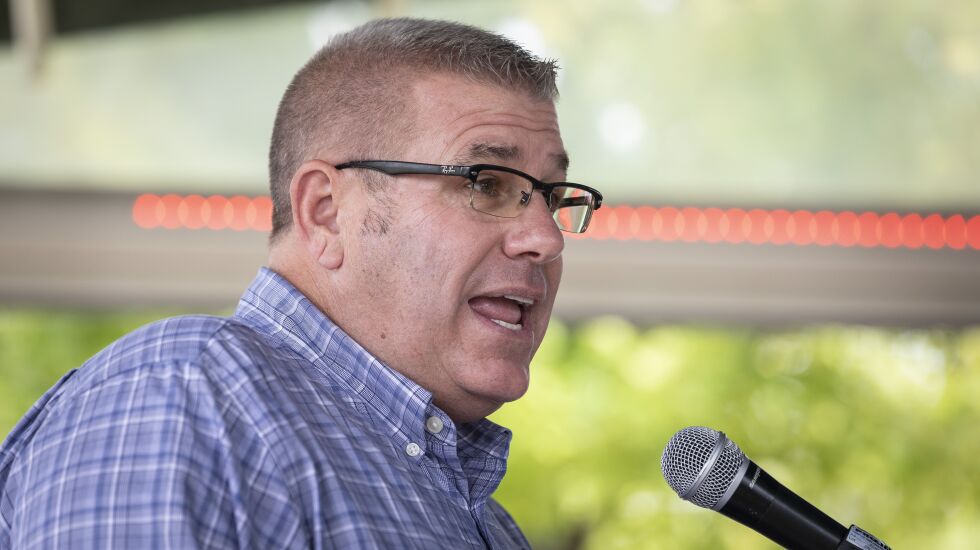
Asked about his time as a legislator, Bailey sees himself as a truth teller.
“I have to sit at the end of every day and consider, what am I going to tell my family, my grandkids, someday?” he told WBEZ. “Am I just going to serve here and collect a check and go back home and tell my voters that I’m fighting for you but all the time knowing that there’s nothing that I can do? Or am I going to expose the problem that Illinois is in decline?”
A legislative record of little progress
The Xenia Republican arrived in Springfield after upsetting an eight-term GOP incumbent in 2018. Bailey served one term in the House before winning a state Senate seat in 2020.
Democratic Gov. J.B. Pritzker doesn’t mince words about what kind of legislator Bailey has been.
“Ineffectual. Somebody who has gotten, I think, two bills passed. And he’s been in office as long as I have,” Pritzker told the Chicago Sun-Times and WBEZ.
The governor said he’s had little contact with Bailey.
“I don’t know how you get things done if you’re not reaching out and talking to people — and certainly if you’re in the minority — talking to people who are in the majority to try to get something done,” Pritzker said.
Bailey’s legislative track record reveals he has been among the least productive Republicans at the Capitol when measured by getting bills for which he is a primary sponsor enacted into law.
As a senator, Bailey was chief sponsor of one bill that became law to help recruit firefighters.
WBEZ found that since 2021 no one within the current 18-member Senate Republican caucus had fewer bills for which they were chief sponsors signed into law. Bailey’s Senate GOP colleagues shepherded between three and 16 bills across the statutory finish line compared to his one.
As a House member, he was the primary sponsor of just one piece of legislation that was enacted, which increased fines for illegally passing school buses. That single win puts him among the bottom half of House Republican colleagues in 2019 and 2020 in terms of primary sponsorship of an enacted law.
But he mocks Pritzker’s opinion of him.
“He has no clue. If you’re going to judge a legislator on the number of bills they got passed, how dare you,” Bailey said. “We do not need more government — more government like J.B. Pritzker wants. It’s ruining our society.”
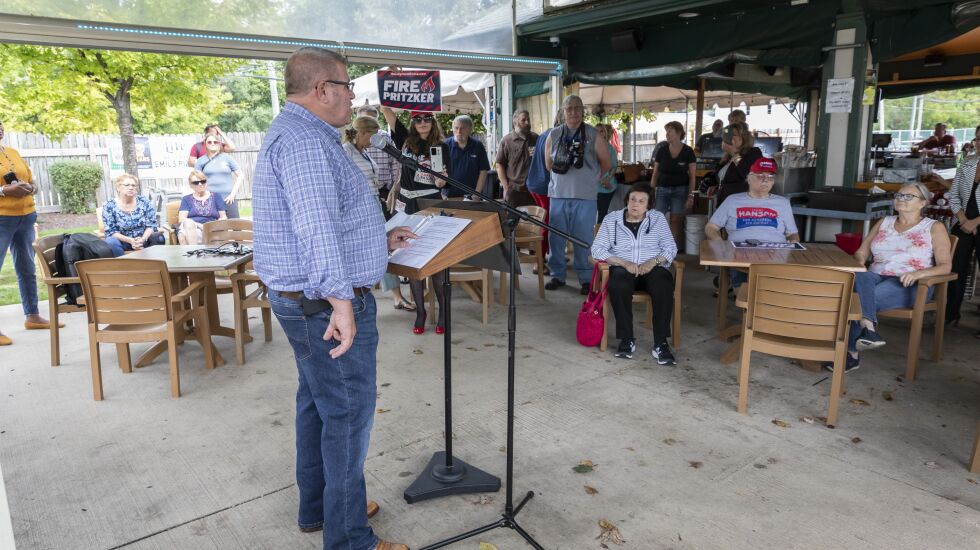
Senate Minority Leader Dan McConchie, R-Hawthorn Woods, accused Senate Democrats — who hold a supermajority of seats — of bottling up Bailey legislatively and called him a “hard worker [who] cares a lot about the people whom he represents.”
“His numbers may not be quite as productive as some other members if only because once he became a statewide candidate, it was certainly within the majority’s interest to … make sure that he didn’t have too many things that he could go out there and bandy about as … proof of his success,” McConchie said.
Bailey’s legislative priorities
Bailey’s priorities emerge through bills he has introduced, votes he has cast — and whom he has opposed.
As a House freshman, Bailey confronted political celebrity head-on as Mayor-elect Lori Lightfoot came to Springfield to make the rounds before taking office.
“Darren kind of challenged her in our caucus meeting,” recalled state Rep. Blaine Wilhour, R-Beecher City, a key campaign adviser for Bailey. “Darren said something to the effect that he wasn’t extremely happy with the way things were going in Chicago.
“She doesn’t like him,” Wilhour said.
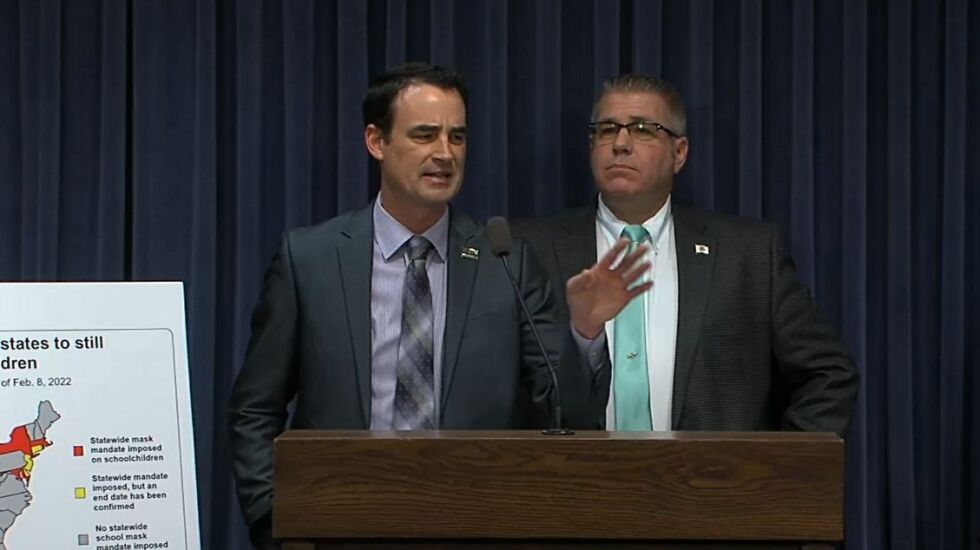
That shared dislike has lived on. During a September Democratic campaign rally, Lightfoot belittled Bailey as an Illinois version of former President Donald Trump and said it was time to send Bailey “back to the farm.”
Like other Republicans, Bailey has never voted for a Democratic state budget. He was a no-vote on a $45 billion infrastructure package in 2019.
Bailey voted against the criminal justice package, the SAFE-T Act, which abolished cash bail for criminal defendants. His opposition to that became a cornerstone of his tough-on-crime messaging.
Bailey voted against legalizing recreational cannabis and more casinos.
Among bills he signed onto, Bailey pushed to eliminate the state firearm owner identification card and to revise the FOID card so that gun permit applicants under 18 could purchase weapons without parental consent if they are active military.
His involvement in the Chicago 51st state resolution embodied the generations-old resentment that downstate carries toward its more influential, wealthier urban counterpart.
“I’ve always compared it to a marriage and a marriage that’s going sour. And one of the partners stands up and says, ‘Hey, I’m not happy here.’ And hopefully then … they’re able to get counseling, and they’re able to repair the marriage. That was my whole entire point,” Bailey said.
Bailey has made kicking Democratically-controlled Chicago around another cornerstone of his gubernatorial campaign. But he talks little of the funding support the city provides to his home county. A 2018 study by the Paul Simon Public Policy Institute at Southern Illinois University showed for every dollar Bailey’s home base of Clay County sent to Springfield, it got $1.84 in return — funding largely underwritten by Chicago and the collar counties.
The abortion laws Bailey wanted
Perhaps Bailey’s biggest bread-and-butter issue legislatively has been abortion.
“First and foremost, I am pro-life,” Bailey said.
Looking forward, he acknowledges a Democratic Legislature likely would constrain him on abortion if he were to win in November.
“Gov. Pritzker’s fear-mongering message that I’m going to destroy the state and take women’s rights away, well, he of all people should know that as a governor, I can’t do that,” Bailey said. “The General Assembly … would have to bring bills to the table. And I think everyone would agree, No. 1, nothing’s going to change. Women are well-protected in Illinois.”
Had any of Bailey’s past anti-abortion bills gotten traction, however, Illinois abortion law would’ve changed markedly.
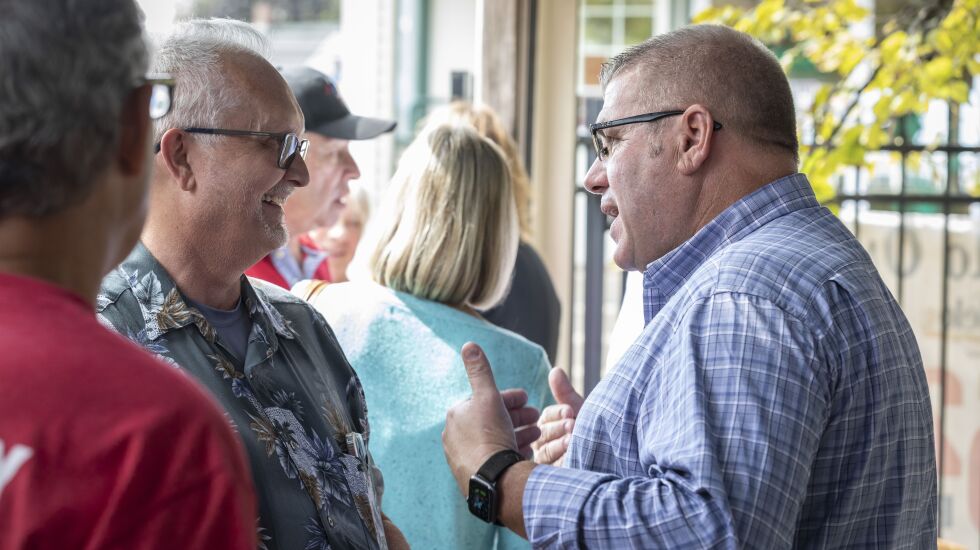
He pushed 2019 legislation to ban abortion after 20 weeks “except in cases of medical emergency.” Treating physicians could face class 2 felonies outside that window, and the legislation established heightened civil liabilities for those involved in illegal abortions.
Under current law, abortions are legal until “fetal viability” — when a fetus can survive outside the uterus — typically between 24 and 28 weeks into the pregnancy, according to the Kaiser Family Foundation.
He proposed banning Medicaid funding for the procedures. He also co-sponsored legislation requiring those seeking an abortion first be shown an ultrasound of the developing fetus.
And Bailey moved to repeal the Reproductive Health Act of 2019 — the subject of his tense late-night exchange with the law’s lead House architect, Cassidy.
At one point during that hearing, Cassidy dramatically recounted her own emergency abortion in 2000 as Bailey pressed her on how many abortions in Illinois were the result of medical emergencies.
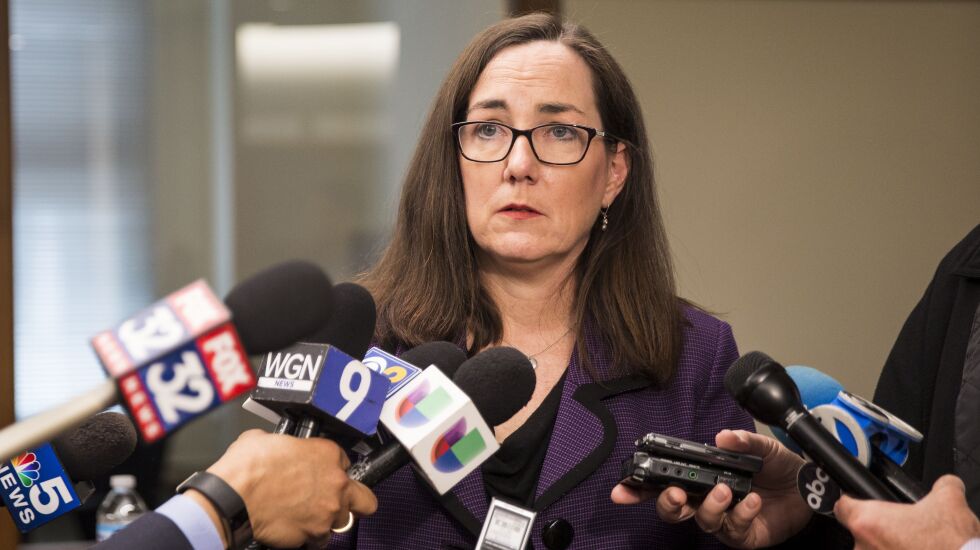
Bailey didn’t acknowledge Cassidy’s ordeal that night, and today she still remembers how “dismissive” that felt.
“I just know the words that he says invalidate my agency as a human,” she said.
Bailey recalls their exchange, too. He disputes that the procedure Cassidy underwent truly represented an abortion because of its emergency, life-saving nature but said he remains “against what Kelly Cassidy stands for” on the issue.
Bailey said he hopes, despite their legislative clashes, he and Cassidy — and, more broadly, Democrats in general — can collaborate to fix the state’s problems if he is governor.
“I respect Kelly Cassidy. I know she respects me,” he said. “I look forward to working with legislators, whatever their background is, whatever their beliefs are. … We’re going to stay on point fixing the things that truly matter to the people of Illinois.”
Dave McKinney covers Illinois politics and government for WBEZ. Follow him on Twitter @davemckinney.







